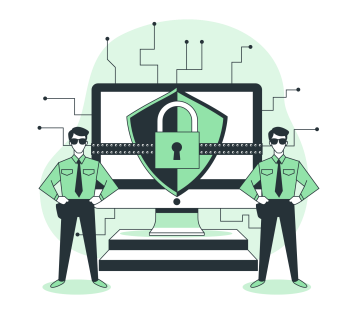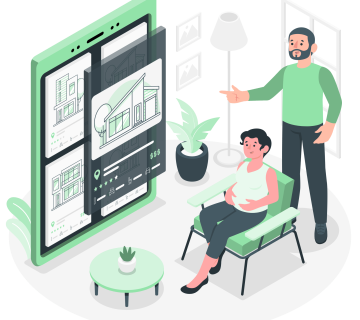CRM ROI Solo Agents: 5 Powerful Reasons It Pays Off Fast
Solo real estate agents often wear many hats—marketer, negotiator, lead generator, and client manager. The phrase “CRM ROI solo agents” may sound like corporate jargon, but for agents flying solo, it’s the secret weapon to boosting income, saving time, and staying competitive. In this article, you’ll learn exactly how the right CRM (Customer Relationship Management) system delivers measurable return on investment for solo agents—and why you can’t afford to go without one.
Why CRM ROI Solo Agents Can’t Be Ignored
When you’re a one-person operation, your time is everything. Every minute spent on manual data entry or chasing cold leads is time not spent closing deals. CRMs automate these processes and centralize your tasks.
Here’s what you’ll gain from understanding CRM ROI:
Real-world insights into CRM impact on agent income
Time-saving strategies through automation
Tips to evaluate CRM value per dollar spent
1. What Does CRM ROI Mean for Solo Real Estate Agents?
CRM ROI solo agents refers to the tangible and intangible return that real estate professionals gain from using a CRM system—without the backing of a team.
The ROI Equation:
ROI = (Gains from CRM – Cost of CRM) / Cost of CRM
For solo agents, gains include:
More deals closed
Faster response times
Stronger client relationships
Fewer leads slipping through the cracks
2. Top 5 Ways CRM Pays for Itself
1. Lead Capture and Conversion
CRMs help agents instantly capture online leads from multiple sources—website forms, Facebook ads, or Zillow inquiries—and automate follow-up emails or texts.
Real-World Example:
Emily, a solo agent in Austin, used a CRM to respond to leads within 2 minutes. Her conversions jumped by 38% in just 90 days, simply due to faster engagement.
2. Time Management
With built-in calendars and task managers, CRMs help you plan daily activities and prioritize high-value leads—no sticky notes required.
3. Personalized Follow-Up
CRMs store client preferences and past interactions, allowing for timely, relevant outreach. That personal touch can be the difference between a closed deal and a ghosted email.
4. Pipeline Visibility
Visual dashboards let you track every stage of your deals. Know where each client stands and what needs to happen next—at a glance.
5. Cost Efficiency
The average solo agent spends hours weekly on admin work. With CRM automation, you reduce those hours—meaning more time to generate revenue.
3. How to Measure CRM ROI as a Solo Agent
To understand if your CRM is delivering value:
Track Key Metrics:
Number of new leads captured
Conversion rates before and after CRM
Average time to close deals
Customer satisfaction or repeat business
Use this data to evaluate monthly or quarterly progress.
Example Tool:
Check out Lead2Done’s CRM ROI Calculator to get personalized insights.
4. Choosing the Right CRM for Solo Agents
Not every CRM is built for individual users. Look for:
Ease of use: Minimal learning curve
Affordability: Flat-rate plans or freemium tiers
Real estate-specific features: Lead routing, property alerts
Mobile access: Work on the go
🔗 Related Reading:
5. Pitfalls to Avoid When Calculating CRM ROI
Ignoring setup time: Factor in onboarding and learning curve
Failing to track usage: If you’re not using 70%+ of features, you’re leaving money on the table
No goal setting: ROI is meaningless without measurable outcomes
6. CRM ROI Solo Agents: Questions Answered (FAQs)
Q1. How long does it take to see CRM ROI as a solo agent?
Most agents see a return in 3–6 months, depending on lead volume and follow-up consistency.
Q2. Is a free CRM worth it for solo agents?
Free plans work well as a trial, but often lack automation and reporting—key for true ROI.
Q3. Can a solo agent really manage everything in one CRM?
Yes! The right CRM consolidates leads, tasks, emails, and pipelines in one easy-to-use platform.
Q4. Do I need technical skills to use a CRM?
Not at all. Many CRMs, like Lead2Done, are plug-and-play with built-in tutorials.
Q5. What is the best CRM for ROI tracking?
Look for tools that offer reporting dashboards and goal-setting features—Lead2Done, Zoho, and HubSpot are solid picks.
Q6. How can CRM boost repeat business?
By storing notes and client data, CRMs let you send personalized check-ins and reminders—keeping you top-of-mind.
Conclusion: Invest Smart—Start with CRM
CRM ROI solo agents gain can be both immediate and long-lasting. From more conversions to saved hours each week, the numbers don’t lie. The right CRM isn’t an expense—it’s an investment in your solo business’s growth.
👉 Try Lead2Done for free today and start tracking your own CRM ROI within weeks. You’ll be amazed at how quickly it pays for itself.






No comment